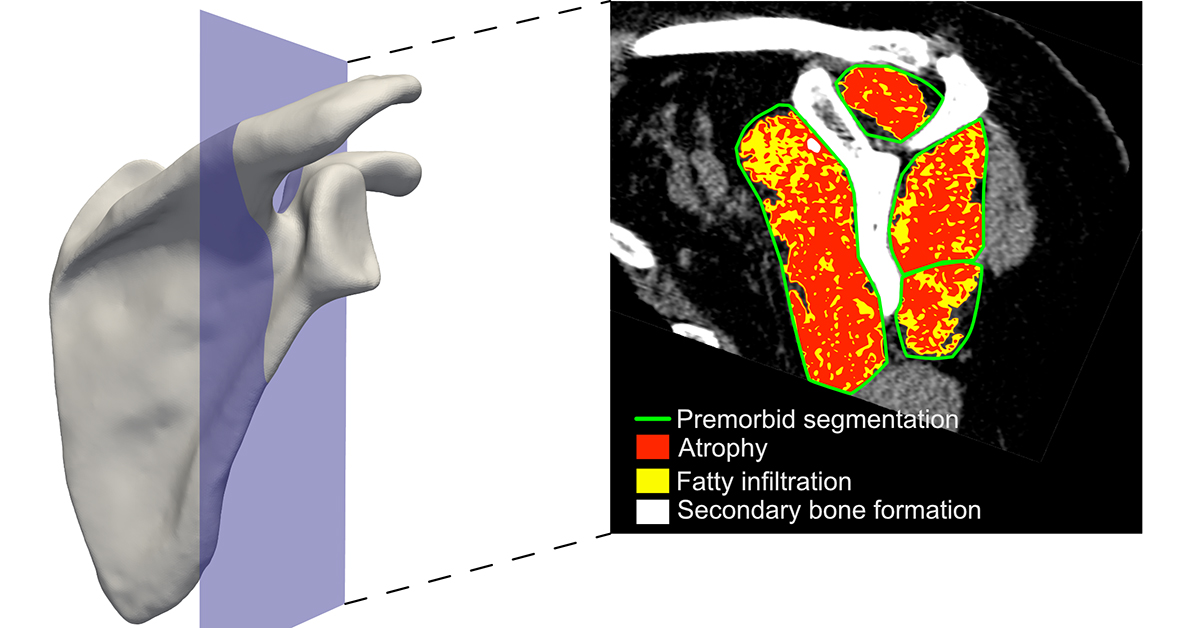2020/09/28 | Research | Biomechanics
Sinergia Project on Shoulder Modelling
Together with the Orthopaedic Biomechanics Laboratory at EPFL, Philippe Büchler, Computational Bioengineering at ARTORG, will be performing a comprehensive analysis of biomarkers that can predict the outcome of total shoulder arthroplasty (TSA) in elderly patients. The project in collaboration with the CHUV aims at developing better prediction parameters of complications frequently associated with (TSA) due to limited bone stock available to anchor the implant, a degenerated anatomy, or restricted muscles competences.
 (Sinergia project Machine learning and patient-specific biomechanical methods for assessing outcome in total shoulder arthroplasty)
(Sinergia project Machine learning and patient-specific biomechanical methods for assessing outcome in total shoulder arthroplasty)
Due to the aging of the population, glenohumeral osteoarthritis (age-related shoulder degeneration) is increasing worldwide, as well as in Switzerland. Consequently, the number of total shoulder arthroplasties has been steadily increasing during the past decades. Although improvements in surgical outcome have been achieved with the introduction of novel generations of anatomical and reverse implants, the failure rate of shoulder replacement remains high compared to the other joint replacements such as hip or knee arthroplasties.
The challenging biomechanical configuration of the shoulder joint can explain the clinical complications. In this joint project we aim to develop patient-specific biomechanical models of TSA interventions. For this we will complete a comprehensive analysis of biomarkers able to predict the follow-up performance of the replacement procedure and determine which biomarkers are critical to the success of total shoulder replacement.
Project details: http://p3.snf.ch/project-189972
Computational Bioengineering